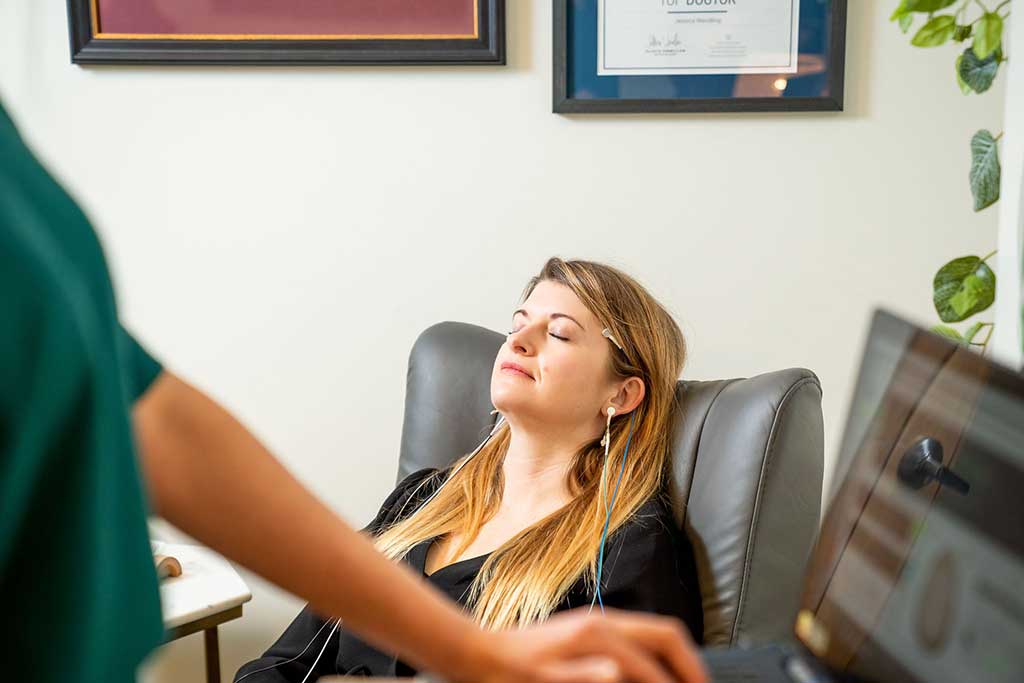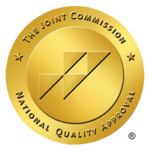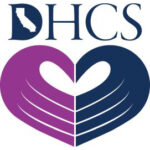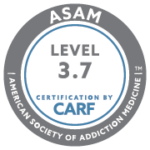Addiction treatment has evolved significantly over the years, with various innovative approaches emerging to complement traditional methods. One such promising technique is neurofeedback therapy.
At First Steps Recovery in Clovis, CA, we recognize the potential of neurofeedback therapy in aiding addiction recovery and offer this cutting-edge treatment to our clients. In this article, we will explore neurofeedback therapy, what to expect during sessions, its benefits, how it compares to traditional addiction treatments, and its specific implementation at First Steps Recovery.

Neurofeedback therapy, also known as EEG biofeedback, is a non-invasive, brain-based therapy that helps individuals self-regulate their brain activity. It involves monitoring brain waves in real time and providing feedback to the patient, allowing them to recognize and modify their brain function. The goal is to improve brain efficiency and emotional regulation, which can be particularly beneficial for individuals struggling with addiction.
The therapy is grounded in the understanding that the brain’s electrical activity reflects our mental states. By identifying irregular brain wave patterns associated with addiction, neurofeedback can train the brain to function more optimally. This method has shown promise in addressing a variety of conditions, including anxiety, depression, ADHD, and most notably, addiction.
In the context of addiction, certain brain wave patterns are often disrupted. For example, individuals with addiction may exhibit excessive slow-wave activity (such as theta or delta waves) in the prefrontal cortex, a region associated with decision-making, impulse control, and emotional regulation. This dysregulation can contribute to the compulsive behaviors characteristic of addiction. Neurofeedback therapy aims to correct these imbalances, helping the brain to function more optimally.

A typical neurofeedback session at First Steps Recovery involves several steps:
Neurofeedback therapy offers several benefits for individuals struggling with addiction:
Traditional addiction treatments, such as counseling, medication, and support groups, have been effective for many individuals. However, neurofeedback offers a unique and complementary approach. Here’s how it compares:
Research on neurofeedback therapy for addiction is ongoing, but several studies have demonstrated its efficacy:
Insurance coverage for neurofeedback therapy can vary significantly depending on the provider and the specific insurance plan. While some insurance companies recognize the benefits of neurofeedback and cover it under mental health or behavioral therapy benefits, others may not.
At First Steps Recovery, we understand that verifying insurance coverage can be challenging. Our team is dedicated to assisting clients in understanding their benefits and exploring all available options. We recommend that clients contact their insurance providers directly to inquire about coverage for neurofeedback therapy, and we are here to support and provide any necessary documentation to facilitate this process. Additionally, we offer flexible payment plans and financial assistance programs to ensure that everyone has access to the comprehensive care they need for their recovery journey.

At First Steps Recovery in Clovis, CA, we are committed to providing our clients with the most effective and innovative treatments for addiction recovery. Our neurofeedback therapy program is designed to complement our comprehensive treatment approach, which includes counseling, medication management, and holistic therapies.
At First Steps Recovery, we are dedicated to helping individuals overcome addiction and build healthier, more fulfilling lives. Neurofeedback therapy is a valuable tool in our treatment arsenal, providing clients with the skills and support they need to achieve lasting sobriety.
In conclusion, neurofeedback therapy represents a promising frontier in addiction treatment, offering a unique and effective way to address the underlying brain dysfunctions associated with addiction. At First Steps Recovery, we are proud to offer this innovative therapy to our clients, helping them take the first steps towards a brighter, addiction-free future. Contact us today to begin your journey.

From our certified therapists and nurses to our emotional support animal "Cooper", our entire team is dedicated to the health and success of our clients throughout our program and beyond.
During individual therapy sessions, clients will interact with licensed and trained counselors to work through underlying issues that may be contributing to their drug or alcohol addiction.
Cognitive Behavioral Therapy (also known as CBT) has been clinically proven to help clients with a wide range of problems, including substance abuse.
Dialectical Behavioral Therapy (or DBT) is another common form of talk therapy that is found in many substance abuse treatment programs.
During trauma-informed therapy sessions, clients are able to talk with a specialist who accounts for their past trauma and the way it may have affected their thinking, behavior, and ability to interact with treatment.
Brainspotting is a type of alternative therapy that utilizes spots in a person's field of vision in order to help them process trauma.
Neuro Feedback is a type of noninvasive therapy that helps clients to alter the way their brain responds to certain types of stimuli.
Family counseling is one of the best ways to reconnect with family members who are affected by addiction and mend the relationship between a client and their family.
With our treatment approach, we help you get to the deeper roots of what’s driving your addiction. Through sharing and listening, the groups become a source of motivation, accountability, and real change.
Dayatra L.
Melissa B.
Bruce G.
Have questions about how our alumni program works? Let's talk.












© 2024 First Steps Recovery | Privacy Policy | Accessibility | All Rights Reserved.

Have questions about First Steps Recovery? We're here to help.
© Copyright 2023 • First Steps Recovery • All Rights Reserved